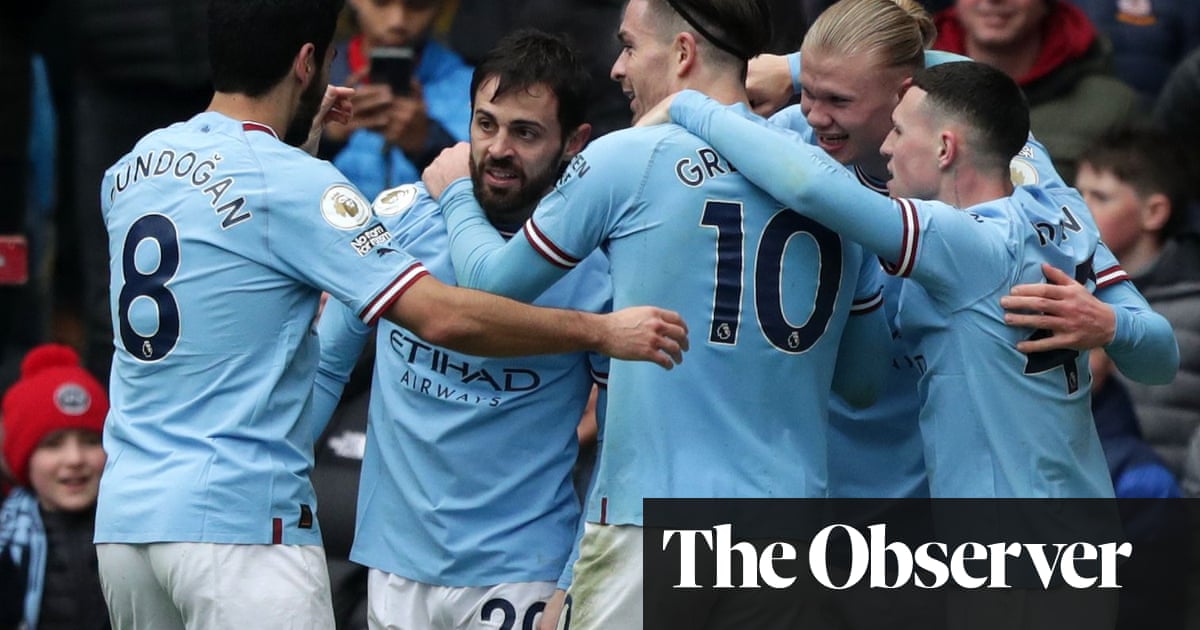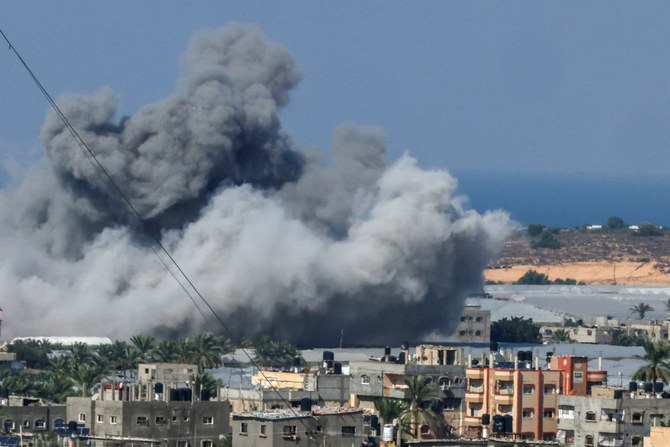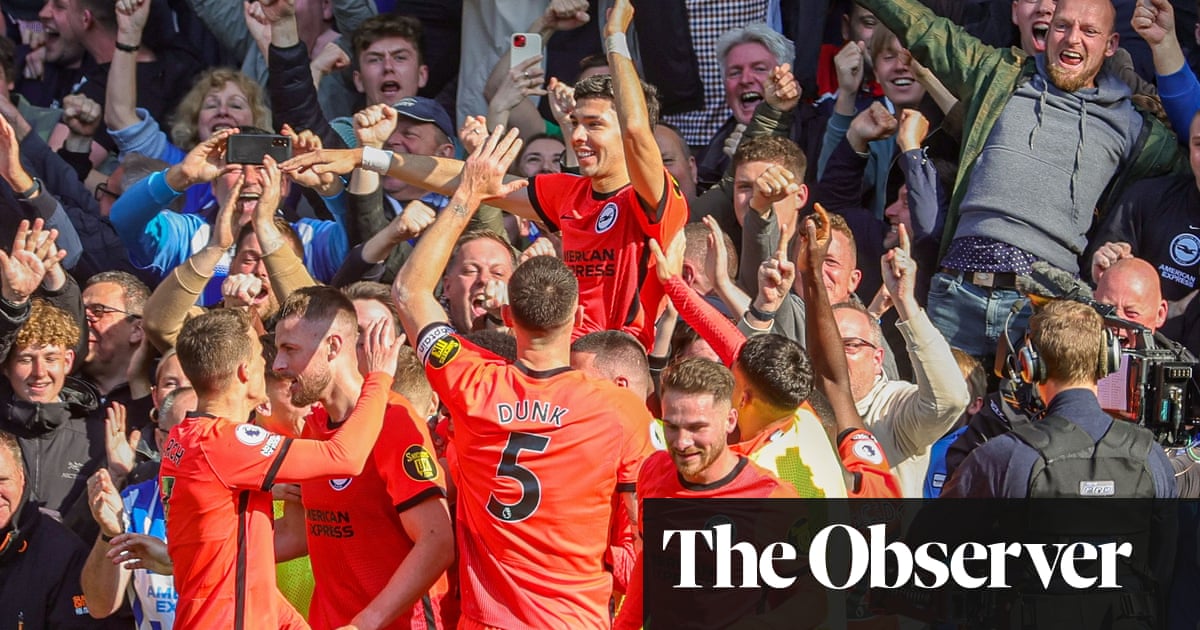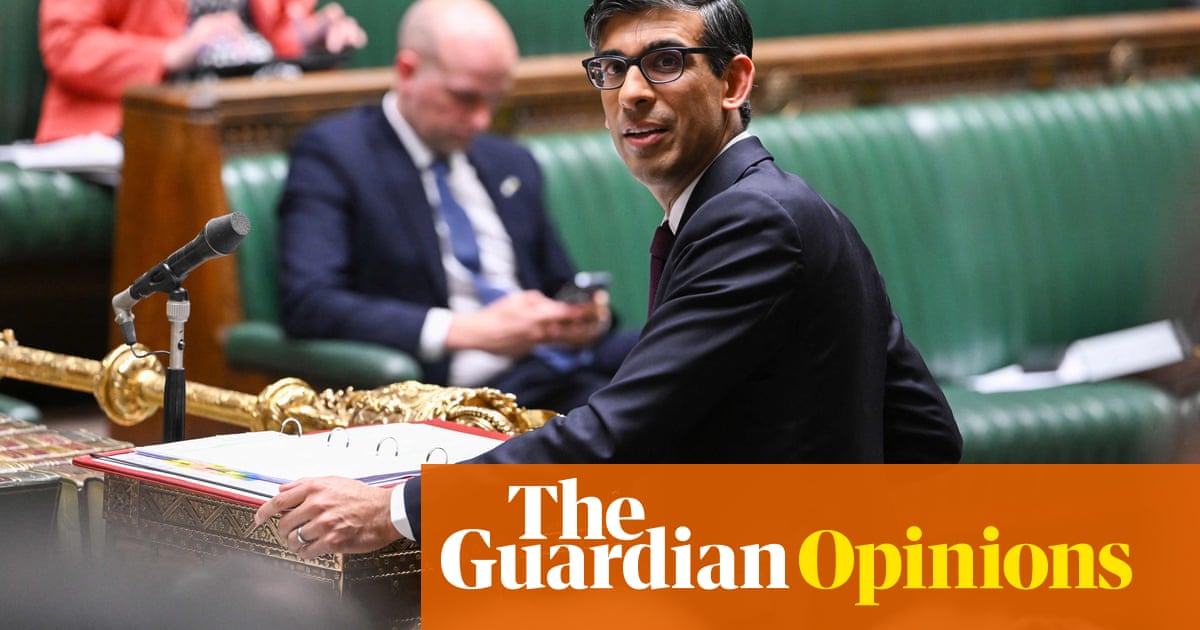
ell done, everyone: we did it. They said it wasn’t possible. They said it wasn’t safe. They said it would be tactless to start up one of the world’s most lucrative sports leagues while thousands are dying. They said it wouldn’t be a fair competition. They may still be right about all of this, of course. More on that in a moment.
But for now, football is back. Watch it. Drink it in. Lose yourself in a pure six-week football bender: 92 Premier League fixtures, spread across every day of the week and every conceivable time slot, all of it live on television, much of it free to air. Take that, null-and-voiders; dry your tears, PPG; up yours, Troy Deeney. Football is back and all it took was the spectre of financial catastrophe and the sight of Germany handling things far more adeptly.
The first point to make is that football is hardly striking out alone. Snooker and horse racing are planning to begin behind closed doors on Monday. Professional golf, cricket and rugby league will be back by August. The resumption of the 2019-20 season was probably a foregone conclusion from the moment the prime minister offered his backing this month and heaven knows the government would be grateful of a little popular distraction right now.
Even so many have been surprised by the speed and bombast which the game has managed to coalesce around the terms of its return. Crisis has a marvellous way of focusing minds. Envy, too. Stung not just by the urgency of the balance sheet but the largely frictionless resumption of the Bundesliga and the resolute noises coming out of Spain and Italy, the 20 Premier League clubs managed to set aside their trademark factionalism for just long enough to approve the contours of Project Restart.
Full contact training was unanimously approved on Tuesday. Thursday brought a provisional schedule, beginning on 17 June with Aston Villa v Sheffield United and Manchester City v Arsenal. On Friday came the announcement of a rescheduled FA Cup final on 1 August. It’s fine to be straightforwardly delighted about this. This, after all, is what we’re here for: the spectacle, the moment, the Barclays.
It’s only natural to get excited about the prospect of Sadio Mané tearing up a defence again, or Kevin De Bruyne pinging a cross, or Allan Saint‑Maximin running the ball extremely quickly out of play for a goal-kick. Meanwhile the move to free-to-air television is a laudable initiative and one of the few progressive ideas to emerge from a situation that largely promises to calcify the game’s existing inequalities.
Equally: it’s fine to be conflicted, overwhelmed, even stupefied, by the cold weirdness of this new landscape. Disinfected training cones. No celebrations. Neutral venues. Not really being able to remember if Chelsea were any good or not. To find all this disorienting does not render you a fraud, a plastic, someone who doesn’t actually like football. One of the more amusing claims for the game’s return is that it will represent a return to normality, as if watching Wolves v Everton on a baking hot July evening at a deserted Molineux on BBC Two will be anything of the sort.
Certainly it’s possible to feel vaguely queasy about the lengths to which clubs are going in order to prove their readiness: all those millions being spent on tests and disinfectant and distancing, all that single-use plastic equipment going straight in the bin. Already, Premier League clubs have carried out more Covid-19 tests (2,752) than the entire UK did in the first two weeks of the outbreak.
And of course it will be safe; at least, as safe as it is reasonable to guarantee. But then, what was euphemistically described as “the safety issue” was only ever partly about safety. It was less about meeting an objective standard or an acceptable vector of risk than about persuading players and public that they could feel safe. It was to this end that the league commissioned such a formidable array of expertise and scientific research to bolster its case (much of which swiftly and mysteriously found its way into the newspapers).
From an early stage Project Restart was as much PR campaign as public health drive. This is why, from the league’s standpoint, the nightmare scenario is not a glut of positive tests among players and staff. Rather, it is the prospect of elite football sailing on in its sterile little bubble while the country at large endures a second wave of the virus: entrenching the idea that good health is not a basic right but a privilege available to those who can afford it.
It’s worth noting the astonishing inversion that has subtly taken place here. The return of the Premier League comes as the Women’s Super League season is cancelled, as Leagues One and Two move to abort their campaigns, as the non-league pyramid is annulled en masse, as grassroots facilities and five-a-side pitches and school fields lie unused. Football, the original people’s sport, the sport anyone could play anywhere, has been shrunk into an elite pursuit, the preserve of the very richest alone.
And for what? Germany may already have dropped the canary down the mineshaft but what we don’t know still far outweighs what we do. We don’t know how much time will be required to build proper match fitness and how sharp any increased injury risk will be as a result. We don’t know the extent to which BAME players are being put disproportionately at risk. We don’t know when fans will return, or even whether they will return in anything like the same numbers.
We do know Liverpool will win the league for the first time in 30 years, and deservedly so, but nobody knows what it will feel like to watch them do it in an empty stadium, surrounded by plastic seats and a skinny row of photographers. We don’t know how serious the erosion of home advantage will be, although intuition and experience suggest the best clubs will benefit most. We don’t know how the asymmetry of the season will impact on fairness. Will Tottenham suffer from playing a “home” north London derby behind closed doors? Perhaps. Will José Mourinho use it as an excuse if they lose? Almost certainly.
In short, we don’t really know anything at all. Nonetheless we push on, because what else is there? The Premier League has thrived by dint not just of its reach but its ubiquity: an endlessly refreshing feed of content, narratives, controversies and tribal beefs. The likes of PPG v Null and Void, Overpaid Footballers v Underpaid Nurses, Kyle Walker v Lockdown Rules, were only going to get us so far.
This is why the grand reopening also feels like a clearance sale. After all, we know what the real story is here: the billion-pound hole in the broadcast deal that needs to be filled with something, anything. Football has never been entirely free of the profit motive but rarely has it felt less like a vital service and more like a fungible commodity: a commercial obligation, a piece of content, a tin of supermarket mystery meat, to be stacked high and sold at a knockdown rate.
It will certainly smell interesting. It will doubtless sustain us for a while. What we don’t yet know is whether you can live off it.












